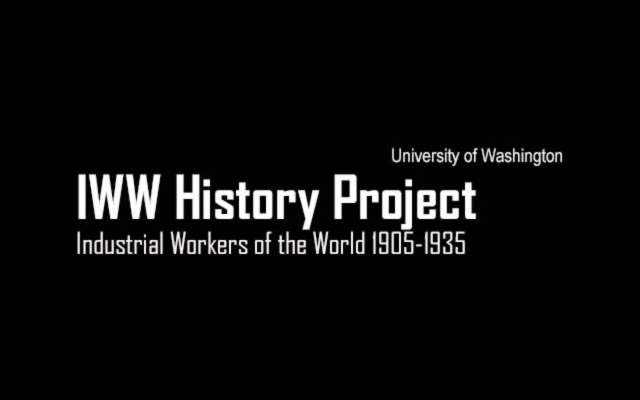
Mapping IWW campaigns, strikes, arrests, persecution
History Site
Interactive maps covering campaigns, strikes, arrests and events involving IWW.

A collection of interactive maps covering events, strikes, campaigns & more from 1905-1935.
Interactive maps covering campaigns, strikes, arrests and events involving IWW.
The National Labor Union was founded on August 20, 1866, in Baltimore, Maryland. It was the first attempt to create a national labor group in the United States and one of their first actions was the first national call for Congress to mandate an 8-hour work day.
Created by the American Social History Project/Center for Media and Learning at The Graduate Center, City University of New York, HERB is a database of primary documents, classroom activities, and other teaching materials in U.S. history. Named in honor of ASHP/CML’s co-founder, labor historian Herbert…
The Studs Terkel Radio Archive (STRA), launched in May 2018 on Studs Terkel’s 106th birthday, is a digital platform whereon, eventually, will live the majority of the 5,600 radio programs Terkel created during his career at WFMT in Chicago between 1952 and 1997 live. This…
The first mass work stoppage in the 195-year history of the Postal Service began on March 18, 1970, with a walkout of letter carriers in Brooklyn and Manhattan who were demanding better wages.
Once called “the strike heard round the world,” the first major labor dispute in the U.S. auto industry ended after General Motors signed a contract with the United Auto Workers Union on February 11, 1937.
On November 23, 1909, more than 20,000 Yiddish-speaking immigrants, mostly young women in their teens and early twenties, launched an eleven-week general strike in New York’s shirtwaist industry. Dubbed the Uprising of the 20,000, it was the largest strike by women to date in American history.
Women Have Always Worked: Fighting for Equality: 1950–2018.
An exploration from an online edX course.
John L. Lewis was born February 12th 1880, to Welsh immigrant parents in the coal mining camp of Cleveland, Iowa- one mile East of Lucas, Iowa. He began working in the Big Hill Coal Mine in Lucas, IA as a teenager, joining the UMWA Local #799 in 1900. He began his rise to power in the United Mine Workers of America and served as President of the UMWA for forty years and was founder of the Congress of Industrial Organizations.